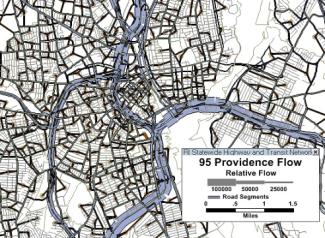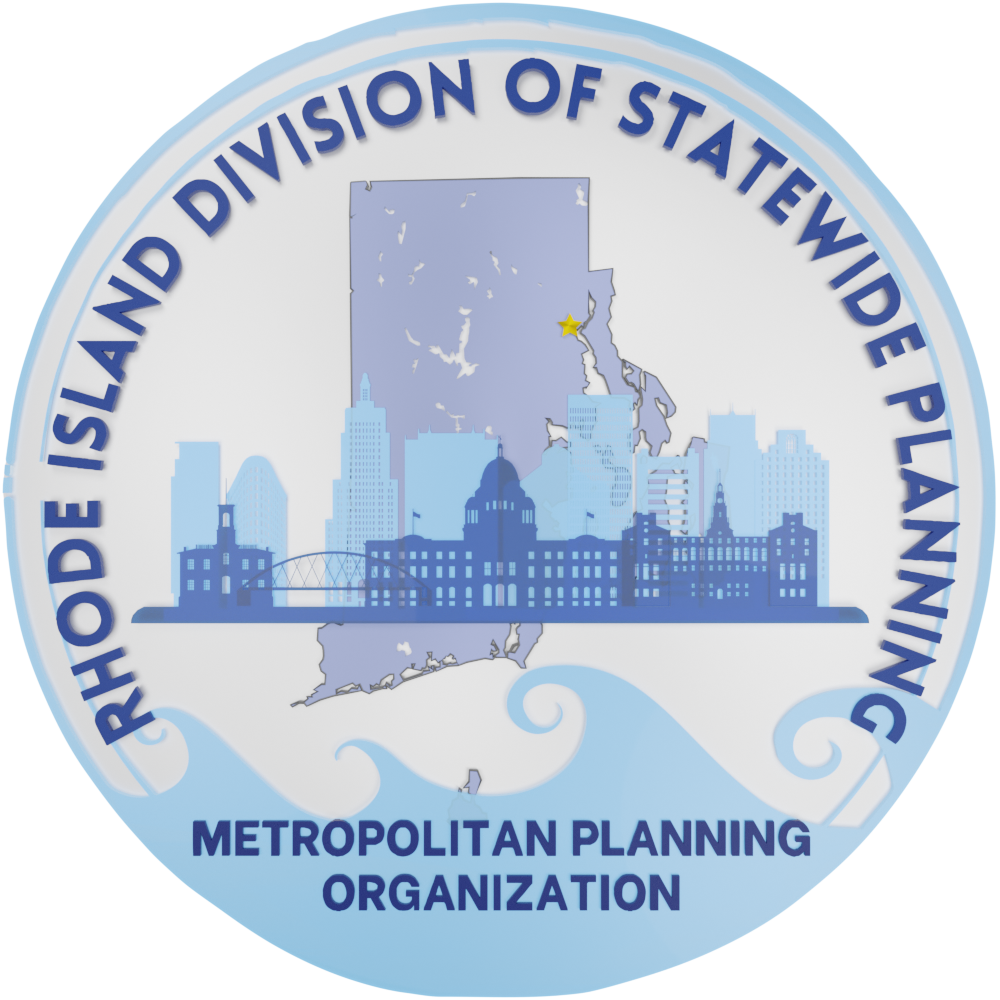Travel Demand Model
The Rhode Island Statewide Model (RISM) is a Travel Demand Model (TDM) developed and maintained by the Rhode Island Statewide Planning Program. The model simulates travel patterns and future demand conditions by populating a simulated road network based on data gathered from the US Census, the Highway Performance Monitoring System (HPMS), the Rhode Island Department of Motor Vehicles (RIDMV), and other sources. The data generated is a method for simulating the impact of changes to the transportation system such as:
- System changes—New roads, road widening, road closures
- Land Use—Residential, commercial, industrial development
- Demographic—Population growth, environmental justice
- Provision of new transit services

The model also has the capability to examine congestion and travel times, variable message signage, signal timing, operational ITS, freight planning and goods movement, and land use and smart growth programs. Since predicting where demand will be can help move limited resources to vulnerable areas, this model has the capability to help make Rhode Island a more efficient and prosperous state. The data from the model is also integrated into Rhode Island's air quality model, which is built according to the U.S. EPA's MOBILE vehicle emission factor model to estimate emissions from cars, trucks, and motorcycles.
Ongoing Updates:
To ensure the continued relevance of the RISM for stakeholders inside and outside of the state government, the Statewide Division of Planning has undertaken an ambitious program of ongoing maintenance and upgrades. As laid out in the RISM Model Maintenance Plan, the model will undergo a program of annual updates to ensure the best data possible is being used as model inputs at any given time. Simultaneously, the Statewide Division of Planning will undertake a program of stand-alone priority updates, to be selected on an ongoing basis, to help meet the needs of their stakeholders, changing federal requirements, and the current planning environment. By engaging in this effort, it is expected that the RISM will be able to make ongoing and increasing contributions to the transportation planning process for years to come.
For further details:
- FY2017-18 RISM Annual Report
- RISM Model Maintenance Plan: 2017-2027
- Technical Paper 166 Statewide Travel Model Update (2016)
- Transportation 2035 Air Quality Report
Those interested in accessing the model should fill out the following form and contact the staff above:

